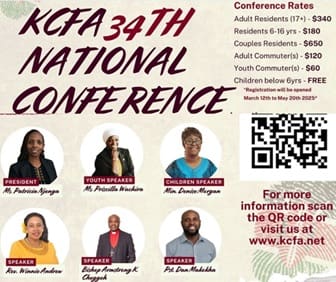
Kenyans living abroad say they feel cheated about not being able to vote in Monday’s closely contested election, even though the millions of dollars in remittances they send back home each year are a major fillip to east Africa’s biggest economy.
There are an estimated 2.5 million Kenyans in the diaspora, many living in the United States and Britain, but also in Germany and Kenya’s east African neighbours.
Kenya’s government concluded in November that its citizens abroad would not be able to exercise their constitutional right to vote because of logistical and financial constraints impeding their registration in time for Monday’s presidential election.
Justice Minister Eugene Wamalwa told parliament in November that voting outside of Kenya, allowed by a 2010 constitution, was “not practical” for the moment given the challenges already facing electoral authorities in enrolling voters at home.
This was “like a slap in the face,” said Erastus Mong’are, a Kenyan living in Delaware in the United States, where the biggest Kenyan community overseas numbers up to 400,000.
Kenya’s March 4 vote will be one of the most closely watched in Africa after a tense campaign that has divided the nation and raised fears of a repeat of the bloodshed that followed disputed 2007 elections.
All the more reason why Kenyans overseas think they should have a say in it. The diaspora community sent home nearly $1.2 billion in remittances last year, according to the Central Bank of Kenya, up 31 percent from a year earlier.
Remittances rank as the fourth-largest source of foreign exchange in Kenya, after revenue from tea, horticulture and tourism, and the hard currency sent home offers much-needed support to the shilling against the dollar.
“People are disappointed because they wanted to participate,” said Gakuru Macharia, secretary general of the British branch of CORD, the alliance supporting Prime Minister Raila Odinga, who is a leading contender in Monday’s election.
“Every year we are sending billions of Kenyan shillings to Kenya to support our families. The property boom that you see in Kenya is fuelled by Kenyans in the diaspora,” Macharia said.
In recent years, following the new 2010 constitution that gave Kenyans abroad the right to vote for the first time, politicians like Odinga have made trips to court the diaspora, recognising their economic clout and ability to mobilise funds.
On the world’s poorest continent, South Africa allows its citizens abroad to vote, but many African states find it hard to organise such external voting, even if they do permit it.
Taxation without representation
Kefa Otiso, president of the Ohio-based Kenyan Students and Scholars Association, said some diaspora members believed they were being kept from voting because politicians back home feared their independence and questions about graft and incompetence.
“Any time these people come out here they get some pretty tough questions from the diaspora about how the government is conducting itself, using resources,” Otiso told Reuters.
“If you raise these questions at home, somebody can interfere with your bank loan, your salary,” he added.
“Many of us know that ideally people in power would like the diaspora to send money and keep quiet … We like to joke that it’s a form of taxation without representation.”
Kenya’s ambassador to the United States, Elkanah Odembo, said Kenyans in America had been keen to vote.
“In my travels around the country talking about this possibility, I sensed they were really excited,” he said.
Odembo said overseas voters could have had an impact in a close election.
“The contested election of 2007 had a margin of just about 400,000. This is just (the number of) the U.S. diaspora. We’re not talking about the other large diaspora in the U.K,” he said.
Britain is home to an estimated 130,000 Kenyans.
Despite not being able to vote this time, Kenyans abroad have still played an active role in the campaign, by raising funds for candidates and sponsoring advertisements on Kenyan radio and television and in newspapers.
“What they’re doing is encouraging their kin back home to vote for their candidates,” said Macharia, adding a significant number had also gone back home to vote and monitor the polls.
But for those not able to travel, the sense of being left out of determining the country’s future is strong and bitter.
“We’re not being treated with respect,” Otiso said.
Source:standardmedia.co.ke








